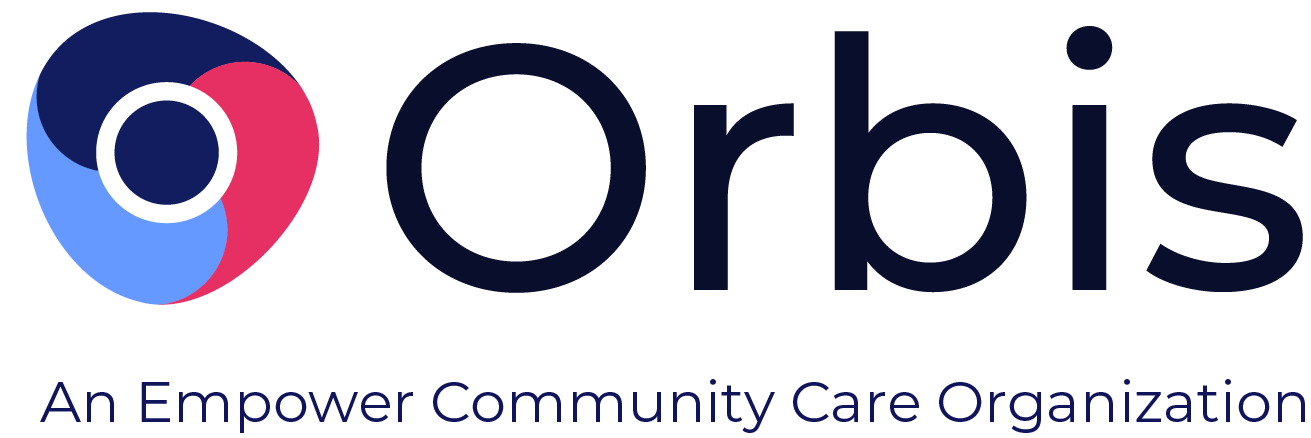Mood disorders cast a significant shadow over the lives of teenage girls, impacting their emotional well-being and overall development. Depression, anxiety disorders, and bipolar disorder can pose immense challenges for these young individuals, affecting their academic performance, relationships, and overall quality of life. As empathetic observers, we must grasp the gravity of these challenges and comprehend the risk factors unique to adolescent females.
By gaining insight into these factors, we can better support and assist them on their journey to mental wellness. Understanding the intricate interplay of hormonal changes during puberty, societal pressures, gender expectations, and genetic predispositions are vital in recognizing the early signs of mood disorders and facilitating appropriate interventions.
Join us as we delve into this critical topic and pave the way for a brighter future for teen girls.
Prevalence and Common Mood Disorders Experienced by Teen Girls
Depression, anxiety disorders, and bipolar disorder are among the most prevalent mood disorders experienced by teenage girls.
According to the Child Mind Institute, "before puberty, the prevalence of mood disorders is about the same in boys and girls—3 to 5 percent. But by mid-adolescence girls are more than twice as likely to be diagnosed with a mood disorder as boys, with the prevalence at adult levels, 14 to 20 percent."
Depression
Depression, characterized by persistent sadness, loss of interest, and a lack of energy, can significantly hinder a teen girl's ability to thrive academically. Concentration difficulties, decreased motivation, and a sense of hopelessness can make it challenging for them to engage in their studies and achieve their full potential.
Additionally, depression can strain relationships with family and friends, leading to feelings of isolation and further exacerbating their emotional burden.
Anxiety
Anxiety disorders, which encompass a range of conditions such as generalized anxiety disorder, social anxiety disorder, and panic disorder, can manifest as excessive worry, irrational fears, and recurring panic attacks. Anxiety can hinder concentration, making it difficult for teen girls to focus on their studies and absorb new information.
Furthermore, anxiety can take a toll on their social interactions, causing them to avoid social situations and limiting their ability to form and maintain meaningful connections with others.
Bipolar Disorder
Bipolar disorder, characterized by alternating episodes of depression and mania, can significantly disrupt a teen girl's academic performance and relationships. During depressive episodes, they may struggle with the same challenges faced by those with clinical depression.
However, during manic episodes, they may experience heightened energy levels, racing thoughts, and impulsive behavior, making it challenging to maintain stable academic progress and healthy relationships.
It is crucial to recognize the profound impact of these mood disorders on teenage girls' academic, social, and emotional lives. By understanding their specific struggles, we can proactively address their needs and create a supportive environment that fosters their overall well-being.
3 Main Risk Factors Specific to Adolescent Females
Teen girls face a unique set of risk factors that can contribute to developing and exacerbating mood disorders. Recognizing these factors is essential in understanding their challenges and providing targeted support.
Let's explore key risk factors specific to teenage girls: hormonal changes and puberty, societal pressures and gender expectations, and family history and genetic predisposition.
#1 – Hormonal Changes
Hormonal changes and the onset of puberty are significant factors that can influence the mental well-being of adolescent girls. Fluctuations in hormone levels during this period can impact their emotional regulation, contributing to mood swings and increased vulnerability to mood disorders.
The physical and psychological transformations experienced during puberty can also contribute to feelings of self-consciousness and body image concerns, further affecting their emotional stability.
#2 – Societal Pressures and Gender Expectations
Societal pressures and gender expectations place an additional burden on teenage girls. The expectations to meet societal ideals of beauty, academic achievement, and social popularity can lead to heightened stress and anxiety.
The pressure to conform to rigid gender roles and stereotypes can restrict their self-expression and cause internal conflict, increasing their susceptibility to adverse mental health symptoms.
#3 – Family History and Genetic Predisposition
Family history and genetic predisposition play a crucial role in developing mood disorders in adolescent females. A history of mood disorders or mental health conditions within the family can elevate the risk for these disorders. Genetic factors can influence how individuals process and respond to stress, impacting their vulnerability to mental health conditions.
By acknowledging and understanding these specific risk factors, we can better identify and address the mental health needs of teenage girls. Providing a supportive environment that promotes open dialogue, destigmatizes mental health challenges, and offers resources for coping and seeking help is crucial in mitigating the impact of these risk factors.
Empowering Teen Girls: Strategies for Identifying and Addressing Mood Disorders
Supporting teen girls with mood disorders requires a multifaceted approach emphasizing early identification, evidence-based interventions, and a network of support from family, friends, and professionals.
By implementing these strategies, we can ensure timely intervention and provide the necessary tools to successfully help adolescent girls navigate their mental health struggles.
Early Intervention and Assessment
Early intervention and assessment are critical components in addressing mood disorders effectively. Recognizing the warning signs and symptoms, such as persistent sadness, changes in sleep patterns, or withdrawal from activities, enables us to intervene before the condition worsens. Timely identification allows for prompt evaluation by mental health professionals who can provide accurate diagnoses and personalized treatment plans.
Evidence-Based Interventions and Programs
Evidence-based interventions and programs also play a vital role in the comprehensive care of teen girls with mood disorders. These interventions are grounded in scientific research and demonstrate effectiveness in addressing various aspects of mental health. For example,
- Cognitive Behavioral Therapy (CBT) equips individuals with valuable coping skills and tools to challenge negative thought patterns.
- Mindfulness-based approaches can help cultivate self-awareness and emotional regulation.
By integrating evidence-based interventions into treatment plans, we can empower teen girls to manage their symptoms and improve their overall well-being.
Support from Friends, Family, and Professionals
Support from family, friends, and professionals is a crucial source of strength and encouragement for teenage girls struggling with poor mental health. Building a network of understanding and compassionate individuals who provide emotional support can significantly impact their recovery journey.
- Family members can play a vital role by fostering open communication, expressing empathy, and actively participating in their loved one's treatment.
- Peers and friends can offer a sense of belonging and serve as a source of solidarity during challenging times.
- Mental health professionals, including therapists and counselors, provide expert guidance, individualized treatment, and a safe space for expression.
Implementing these strategies can create a comprehensive support system that nurtures positive mental health in teenage girls. Together, we can make a difference in the lives of these remarkable young individuals.
Orbis Partners' Role in Supporting Teen Girls with Mood Disorders
Orbis Partners understands teen girls’ unique challenges with mood disorders and provides comprehensive support to those who support them. Through evidence-based interventions, risk assessment tools, and case management software, Orbis Partners strives to empower and promote positive change in the lives of these young individuals.
Offer Evidence-Based Programs and Interventions
One of the cornerstones of Orbis Partners' approach is offering evidence-based, gender-responsive interventions and programs. These interventions are rooted in scientific research and have proven effective in addressing the complexities of mood disorders in teenage girls. Orbis Partners equips professionals serving teens with the tools to foster valuable skills and coping mechanisms.
Provide Risk Assessment Tools and Case Management Software
In addition to interventions, Orbis Partners provides risk assessment tools and case management software to enhance the identification and management of mood disorders in teen girls and young women. These tools assist in early detection, enabling timely intervention and personalized care.
The Service Planning Instrument for Women (SPIn-W™) is a risk assessment and case planning tool that offers four key elements:
- Assess trauma
- Pre-screen for early case decisions
- Translate results into case plans goals and recommended service
- Customize to fit various treatment settings
Another useful tool in assessing risk factors for teen girls with mood disorders is the Youth Assessment and Screening Instrument (YASI™), which is used for both boys and girls but weighted differently for each gender. This assessment tool evaluates a range of factors, such as:
- Mental health
- Substance use
- History of trauma
- Family and peer relationships
The YASI™ can be an important resource for clinicians seeking to identify potential risk factors and make informed treatment decisions for their adolescent clients.
By leveraging technology and data-driven approaches, Orbis Partners helps mental health practitioners ensure they meet the mental health needs of teenage girls with precision and efficiency.
Promote Change through Motivational Interviewing and CBT
Motivational Interviewing and Cognitive Behavioral Therapy (CBT) are key therapeutic modalities Orbis Partners can train for.
- Motivational Interviewing focuses on building motivation and resilience, helping teen girls develop intrinsic motivation to make positive changes in their lives.
- CBT equips adolescent girls with practical skills to identify and challenge negative thoughts and behaviors.
By utilizing these evidence-based techniques and a suite of mental health-focused e-learning courses, Orbis Partners helps mental health professionals build a toolkit of intervention strategies to empower teen girls to gain greater control over their emotions, thoughts, and actions.
The Bottom Line
Together, we can create a brighter future for teenage girls, ensuring their emotional well-being and helping them unlock their full potential.
Orbis Partners provides solutions for criminal justice and human services systems, specializing in designing and implementing services for at-risk client groups. Orbis' risk/needs and strengths assessment tools for youth are designed to guide the casework process by incorporating an individual's unique needs. For more information about assessments related to high-risk youth, visit our Assessments page by clicking here.


